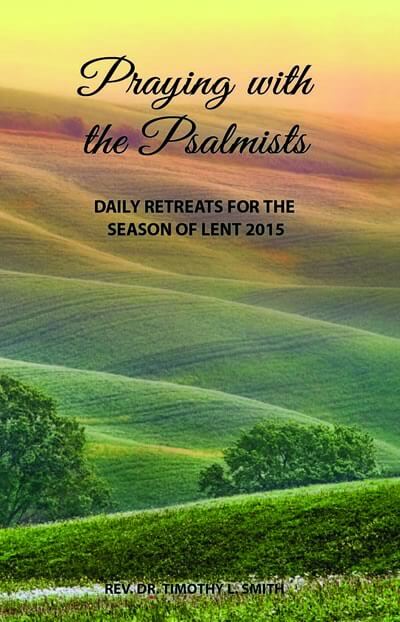 Seeing God’s Handprints
Seeing God’s Handprints
He makes springs pour water into the ravines;
it flows between the mountains.
They give water to all the beasts of the field;
the wild donkeys quench their thirst.
The birds of the sky nest by the waters;
they sing among the branches.
He waters the mountains from his upper chambers;
the land is satisfied by the fruit of his work.
He makes grass grow for the cattle,
and plants for people to cultivate—
bringing forth food from the earth:
wine that gladdens human hearts,
oil to make their faces shine,
and bread that sustains their hearts.
Psalm 104:10-15
When I was a boy in school we talked a lot about nature. We talked about the instinctual migration of hummingbirds across the Gulf of Mexico and called it nature. We talked about the watchful, fastidious care of ducklings by their mother and called it nature. Even when I went to college many of the mysteries of the universe were explained as nature. Nature was seen as some miraculous, benevolent force governing and guiding the workings of the cosmos from atoms and cells to galaxies and black holes. It all had to do with nature. Sometimes nature was even raised to the status Mother Nature, or Nature with a capital N.
For all the talk about nature I was surprised when I began studying Biblical Hebrew to learn that the Biblical writers and psalmists had no word for nature. Nature did not exist for them. Rather, they spoke of the Creator and His creation. So they watched the yearly migration of birds, and saw God at work. They gazed up at the star-studded sky, traced the regular journey of the planets, and praised God. And they sang psalms. They sang jubilant psalms praising God for His creation and care.
Today’s psalm text comes from a lengthy psalm praising God as Creator and Caretaker of His creation. An unknown poet-musician looks around him and sees a “world charged with the grandeur of God” (Gerard Manley Hopkins, poem, “God’s Grandeur”). Like the prophet Isaiah, the psalmist is swept up by how “the whole earth is full of his glory” (Isaiah 6:3).
Most of all, the psalmist is praising God for His gracious provision in meeting His creatures’ needs. He paints a wondrous harmony of God giving waters “from his upper chambers” that give life to valleys. In turn, the valleys provide a living carpet, sustaining animals and humankind. There is a marvelous interrelatedness of all of God’s creatures, with each dependent on the life of the other. All is divinely planned and ordered so that God might bless and enrich lives with “wine that gladdens human hearts, oil to make their faces shine, and bread that sustains their hearts.”
The psalmist sees the miraculous in God’s care of His creation and creatures. Saint Augustine also saw the miraculous in God’s daily, regular provision for us. He likened these everyday miracles to the miracles Jesus performed:
At the wedding feast in Cana of Galilee Jesus filled six water pots with wine; but He does the same thing every year in the vines. In like manner also is what the clouds pour forth, changed into wine by the doing of the same Lord. Only that does not amaze us because it happens every year; it loses its wonder by its constant recurrence. (St. Augustine, Commentary on the Gospel of John)
The psalmist finds God’s handprints scattered throughout all of creation. He does not allow the faithful, reliable, “constant recurrence” of God’s provision blind him to the miracle in it. In the Book of Acts the apostle Paul calls for unbelievers to consider God’s care of His creation and His creatures:
Yet he has not left himself without testimony: He has shown kindness by giving you rain from heaven and crops in their seasons; he provides you with plenty of food and fills your hearts with joy (Acts 14:7).
The psalmist cannot help but praise a generous God for the wonder of His creation and care, and so should we! Its not nature, it’s God!
READ REFLECT RESPOND REST
RECORD (optional)


 Seeing God’s Handprints
Seeing God’s Handprints
